So like the title says I am interested in photography but know next to nothing about it. My question is what’s a good camera for someone like me preferably under $800? Thanks in advance for the help.
I started seriously learning about photography in 2008. No fancy smartphones at that time. I really enjoyed learning on a cheap and used Canon EOS400D and the cheap canon 50mm f1.8. Something similar would probably be the 4000D today. Then I read and watched videos about aperture, shutter speed and ISO. I am pretty much happy to have learnt this way and now I can also take good pictures with my phone :D
Thanks for the tip.
I mildly agree with the comments about using your smartphone camera first, but that also depends if there’s much settings to play with.
A lot of newer phones do let you dial in shutter speed and ISO, and that’s a great starting point. But if you’re itching to really learn with a camera and get comfortable with dials and settings I would get an old film camera like the Pentax Spotmatic with some M42 lenses ($50-$200) or something digital like a Fuji X-T20/Sony A6000 (about $500).
I don’t wholly like the idea of using a phone to learn since you’ll reach the limits fairly soon with the lack of settings.
I learned by carrying my camera everywhere I went, shot for some local organizations to practice and did public events. What another commenter said on studying your favorites is right, start by understanding how to recreate something you like.
Thank you, I will definitely look into both of these options.
This will depend a lot on why you want to get out of photography.
If you just want to learn how to compose a scene, direct a model for portraits, or simply record a moment in time, there’s nothing wrong with a cell phone.
If you want to learn the exposure triangle (shutter speed, aperture, ISO), you might want to get something where the lens has a manual aperture ring.
There’s a lot to consider in regard to technology and the weight / bulk ones of the camera. An older DSLR will certainly take great photos and help you learn photography, and come in under your budget, but it’ll be slower and heavier. Something with fast autofocus (great for sports and wildlife) could easily push past your budget. It could be argued that a camera with manual focus would be a more engaging picture taking experience; if that’s what you want.
Personally, I’d look at something like a Fujifilm X-E2 with a the Fujinon XF 35mm f2 lens or Fujinon XC 15-45mm lens. The camera has some advanced and fun features but with lots of manual controls. The 35mm lens is fantastic and has a manual aperture ring. The 15-45mm lacks an aperture ring but it’s small and light and allows you to adjust your field of view.
Edit: I just saw a couple X-E2 cameras on eBay including an 18-55 lens between $800-900. The 18-55 is an incredible lens but I think too big for that camera.
Wow thank you this is so much help. Like you suggested I might need to spend some time taking pictures with my phone camera or at least until I have a somewhat of a grasp of the basics. Thanks again.
The 18-55 isn’t too bad for that size. I’ve got an X-T30 II which is fairly comparible in size and that lens is a pretty good fit.
The other comments covered this, but I’ll pile on anyway: start cheap (like your phone). Work on subject and composition rather than worrying about technological features. Find photographs you like, think about what makes those photographs stand out, and see if you can mimic the result. Carry your camera often and be ready when an opportunity arises, or put yourself in a position to get a shot rather than waiting for it to come to you. Old photographers used to joke, “What are the best camera settings? f/8 and be there.”
FWIW I started learning on refurbished manual SLRs from the 70’s and 80’s. No auto focus, no auto exposure, and no zoom. Moving up to modern DSLRs was a mixed blessing: all the automation can be helpful, but can also be very distracting. I still miss my old Olympus OM-G with it’s 50mm prime lens.
Oh wow another great advice, I might just have to at least look into some old school cameras myself, didn’t even think about it until I read your comment. Thanks.
Firstly, consider spending some time with your phone camera. There are apps that should allow you to manually adjust ISO and shutter speed. Most phones aren’t going to have good RAW support or allow aperture adjustments, so you will need to focus on a specific set of things. Read or watch videos on artistic ideas like composition and color. When I was first getting interested in photography I did this for about 6 months just to be sure it actually held my interest long enough to justify spending money.
I would recommend reading this:
https://www.rtings.com/camera/reviews/best/by-type/mirrorless-beginners
Personally I would pay attention to the Sony and Fujifilm lineups. If you need a bit more portability then also consider Lumix and Olympus/OM.
I would recommend avoiding the RF(Canon) line for beginners due to the limited and expensive lens selection. I say that as a Canon R6 owner.
Thank you for the help I might just take your and others suggestions and start with my phone camera and go from there.
I think it’s best to avoid Canon in general as a hobbyist these days with their locked down RF ecosystem. No third-party options means no affordable alternatives.
I started out with an entree level DSLR camera from Canon. I choose Canon because there are so many cheap lenses available, second hand but also from third parties, like Tamron, Sigma and Rokinon. I just tried different lenses, but also things like a reversal ring or extension tube, m42 adapter, polarizer filters and many other things. That is how I rolled into astro photography, whereas nowadays I’m more into bird photography. My advice, just play around and experience what you like the best. Expensive gear is oftentimes not the answer.
I highly appreciate your help and will keep it in mind, but a few of the comments suggested I start with my phone camera and play around with the setting there so will probably do that before making a decision. Thanks.
Sure go ahead! I was always interested in the technical side which made me pursue the route with adapters and different types of lenses. I hope you find what makes you happy :)
Thank you, I appreciate all your help.
Lots of good advice here already about phone vs camera etc. On that note I’d say, whatever will inspire you to take more pictures. If there’s something just cool to you about having an old film camera with manual focus, for example, go for that. The other sometimes overlooked side is post processing. To me, what you do to the photo on your computer is at least half of what makes a good photo. This can be Photoshop (if you have a license thru your work/school, otherwise it gets expensive), Lightroom (ditto), Affinity Photo (which I use), or free options like RawTherapee, gimp, etc. If you enjoy tweaking photos, this can be a deeeeep rabbit hole! It’s amazing what you can do with a few skills. Anyway… just wanted to plug that other aspect of photography since I love it so much. Good luck!
Yes, I am very interested in post-processing work as I have some experience in it (took some classes in High School), but that was over a decade ago at this point, and we were just practicing with pics off of the internet. Thanks for the advice.





